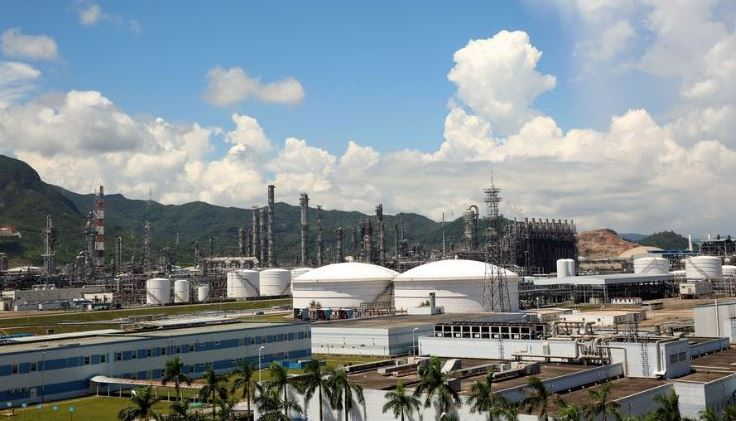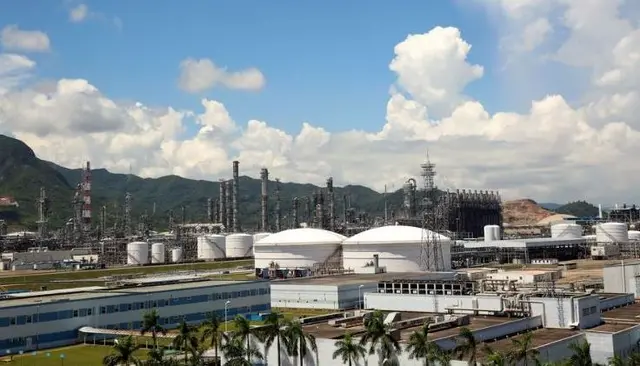
Undated file photo shows the Huizhou Dayawan Petrochemical Industrial Park in south China's Guangdong Province. Multinational oil and gas corporation ExxonMobil broke ground on the chemical complex on April 22, 2020. /Xinhua Photo
**Editor's Note: **The following article is taken from the Chinese-language opinion column "The Real Point."
ExxonMobil, the biggest energy company in the U.S, began construction of its 10-billion-dollar petrochemical complex in south China's Huizhou city on Wednesday, despite the global coronavirus pandemic and oil market meltdown casting gloomy shadows over the proceedings. The confidence and optimistic expectations of the multinational corporation are clearly reflected in the Chinese market.
Launched as scheduled 18 months after initiation, ExxonMobil Chairman and CEO Darren Woods said that the new project reflected China's growing commitment to foreign direct investment and fostering innovation. "All of this creates an environment that enables ExxonMobil to continue our strategic long-term investments," he added.
ExxonMobil is not alone in expanding its presence in China. On the same day that the lockdown in virus-hit Wuhan was lifted, Wal-Mart announced an expansion plan worth more than 400 million U.S. dollars in the city. A survey jointly conducted by AmCham China, AmCham Shanghai and PwC China found that over 70 percent of the surveyed U.S. companies would not move production, supply or procurement operations out of China because of the pandemic. These provide further evidence of the absurdity of some American politicians’ claims of decoupling from China.
British thermostatic controls manufacturer Strix revealed why foreign investors are confident in investing in China. The company's operations in the country reopened at full capacity within just a few weeks. Chief executive Mark Bartlett said the discipline and motivation to be creative in tackling challenges in China are helpful for resuming production.
Aside from the resilience of the Chinese economy, its vast consumer market is another factor helping to maintain foreign investor commitment.
The first phase of ExxonMobil's Huizhou project includes facilities with an annual output of up to 1.6 million tons of ethylene, which is widely used in industrial and personal consumer products—a considerable amount of which will be directly sold on the Chinese market. It is estimated that once the first phase of the project is completed, it will bring ExxonMobil about 5.5 billion U.S. dollars in revenue annually. The project is a vote of confidence in China that further exemplifies deepening international economic and trade cooperation.
China's comparative advantages, such as a complete industrial system, sound infrastructure and abundant human resources, have been accumulated over decades of development. They won't be changed by a short-lived pandemic. Investors with long-term vision will gain more opportunities in participating in China's economic recovery and future development.
(If you want to contribute and have specific expertise, please contact us at [email protected].)
 简体中文
简体中文

